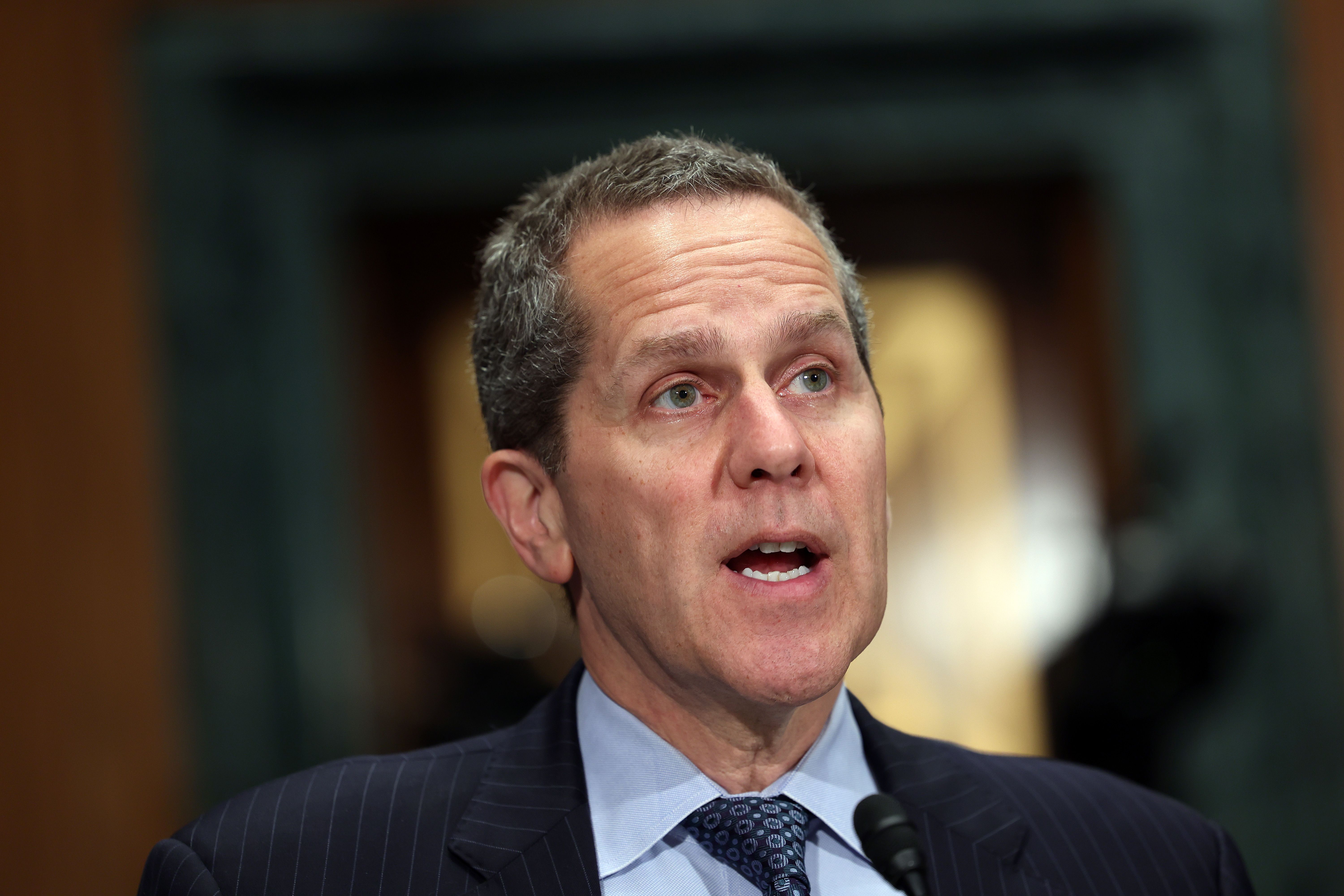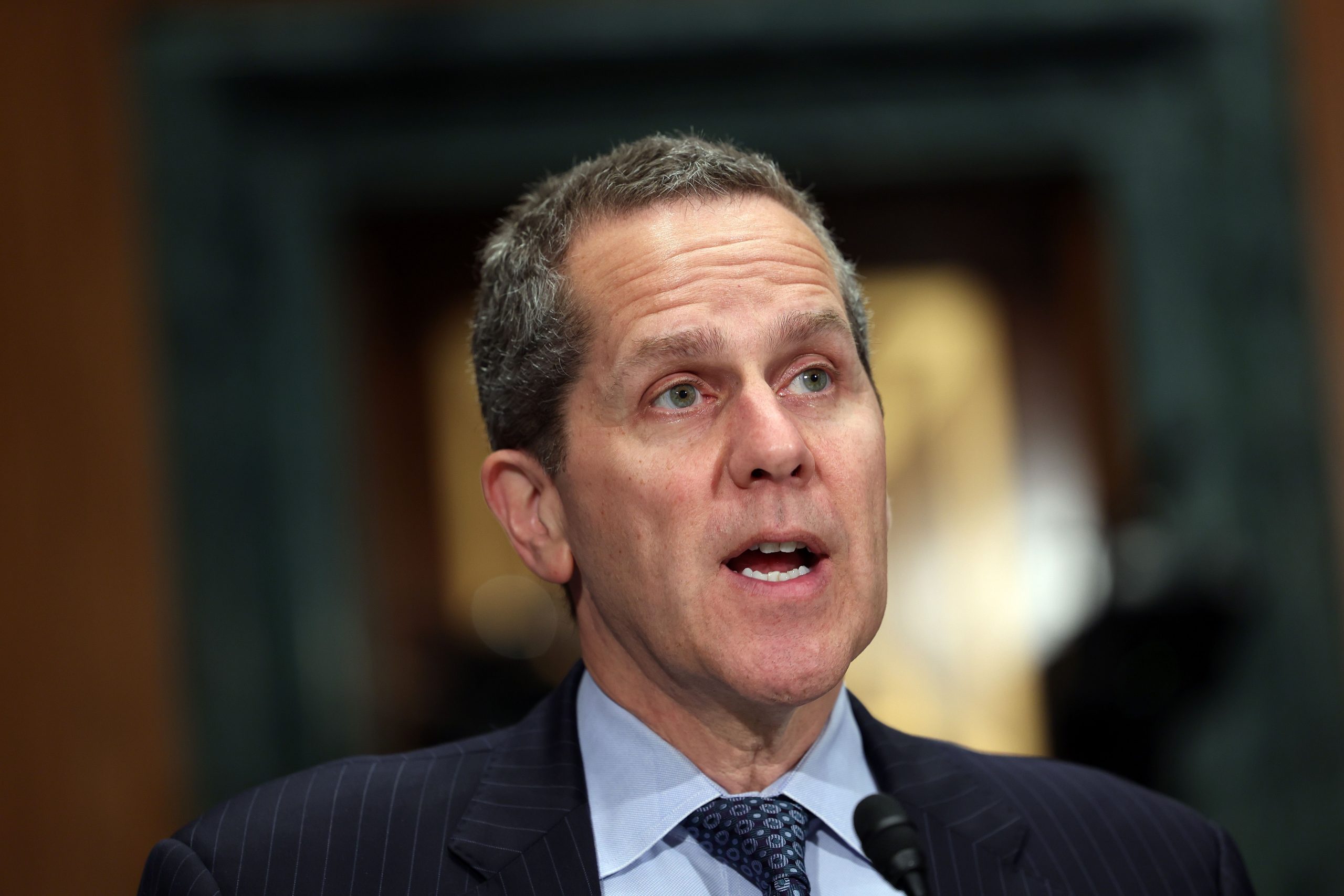
Michael Barr, the U.S. Federal Reserve’s vice chair for supervision, will step down from his position on Feb. 28 — or earlier, if a successor is confirmed — according to a Monday announcement from the Federal Reserve.
Barr will continue to serve as a member of the Federal Reserve Board of Governors.
In a statement included in the Federal Reserve’s announcement, Barr suggested that he decided to voluntarily resign in order to avoid a potential dispute with the incoming Trump administration.
“The position of vice chair for supervision was created after the Global Financial Crisis to create greater responsibility, transparency, and accountability for the Federal Reserve’s supervision and regulation of the financial system,” Barr said. “The risk of a dispute over the position could be a distraction from our mission. In the current environment, I’ve determined that I would be more effective in serving the American people from my role as governor.”
According to Jaret Seiberg, a financial policy analyst at TD Cowen, Barr’s decision to step down is a potentially worrisome sign of the continuing politicization of banking regulation. In an analyst note to clients on Monday, Seiberg wrote, “Agency chiefs used to stay when the White House changed parties. That is no longer the case, which means banks should expect bigger policy swings each time the White House changes control.”
The Federal Reserve’s vice chair of supervision functions as the top banking watchdog and is considered one of the most important regulatory roles in the U.S. In his position, Barr had a heavy influence on how the traditional financial system interacted with cryptocurrencies.
Though Barr had some crypto bona fides before his appointment, including serving as an advisor to Ripple, the issuer of the XRP token, his tenure has been a mixed bag for the crypto industry. Barr has pushed for the Federal Reserve to have the power to regulate and enforce the law against stablecoin issuers in the U.S., which many Republican lawmakers have taken issue with.
In a Monday statement, Sen. Tim Scott (R-South Carolina) blasted Barr’s “supervisory failures” during the bank failures of 2023 and the “disastrous Basel III Endgame proposal” issued the same year.
“Michael Barr has failed to meet the responsibilities of his position,” Scott said. “I stand ready to work with President Trump to ensure we have responsible financial regulators at the helm.”
According to Seiberg however, Barr’s resignation is unlikely to change much in the short term, as Democrats will continue to have a majority at the Federal Reserve until early 2026. If Trump wants to replace Barr quickly, Seiberg said, he will likely be forced to nominate a successor from within the Board of Governors.
“The logical candidate is Michelle Bowman,” Seiberg wrote. “She is a former Kansas banking commissioner who also worked at a community bank. And she has been at the Fed since late 2018. She also often speaks on bank policy and has been critical of Barr’s approach to Basel 3 Endgame.”
Speaking at the DC Blockchain Summit last year, Bowman stressed the importance of “regulatory openness” to innovation and new technologies.


